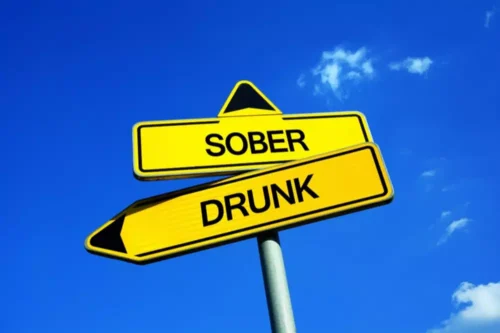
Years of heavy drinking can significantly alter how the brain looks and works. Acamprosate, sold under the name Campral, is prescribed to help your brain begin to function normally again after you quit drinking. Research studies have also started to look into whether or not acamprosate helps reduce the symptoms of PAWS including insomnia, anxiety and restlessness.
How to Clean Your System of Alcohol in 24 Hours?
Drinking plenty of water will reduce dehydration and get water back in your system. An electrolyte drink will help your body hold the fluids and rehydrate faster. Alcohol’s impact on your body begins with the first sip, however long-term use of alcohol can take its toll on your body. The severity of the short-term effects of alcohol depends on how much you’ve had to drink. Moderation is key when enjoying a cocktail this holiday season. Fasting is one way to clean out the body and also give it a chance to self-heal.

Inpatient Detox
Remember that while these foods and drinks can support your recovery, the most effective way to eliminate alcohol from your system is time. Your liver will metabolize alcohol at its own pace, and these choices can complement the natural detoxification process. The side effects of alcohol consumption, such as dehydration, how to flush alcohol out of your system in 24 hours cognitive impairment, and nausea, can leave you feeling tired and irritable the next day. Studies found that people who slept less after a night of drinking tended to experience worse hangovers than those who got more sleep. If possible, allow yourself adequate time to get a good night's sleep so your body can recover.
What is the best way to sober up?
An unhealthy liver can’t effectively filter toxins and wastes from your blood. One of the best ways is by taking quality supplements for cleanse and detox. Some people who don’t require a lot of supervision might simply check in with their regular doctor’s office or a home health agency at scheduled intervals during their detox. Some people attend a daytime program at a hospital or substance abuse treatment facility but go home at night.

The liver plays a primary role in processing alcohol, so any type of liver damage will reduce its efficiency. Water is an excellent way to flush out all kinds of toxins, poisons and debris from the body. Vegetable juices, fruits juices and herbal teas are also healthy fluids that help to dilute the drugs, poisons and toxins in the body. Joining a specialized program is ideal if you want to remove alcohol from your body. However, you can start educating yourself about alcohol and its effects if you want to learn and understand how to flush alcohol out of your system. The process will help your system withdraw from the alcohol you have been addicted to.
- The liver is the primary organ for eliminating alcohol and needs time to filter the blood and break the alcohol down.
- There’s nothing wrong with celebrating with an alcoholic drink here and there.
- You feel your phone vibrate and then anxiously reach to see who texted.
- Alcohol, commonly referred to in medical and scientific communities, is known as EtOH.
- If you don’t like drinking water straight up, you can add a little flavoring to it.
- As you age, alcohol remains in your system longer because your body becomes less efficient at metabolizing it.
- The sources cited below consist of evidence from peer-reviewed journals, prominent medical organizations, academic associations, and government data.
- That’s why the decision on where to get treatment should not be taken lightly.
- When your BAC reaches this point, you are at the highest risk of losing consciousness, alcohol overdose, and death.
- However, the toxins in alcohol actually lower the amount of glucose in your bloodstream, which can lead to hypoglycemia (low blood sugar).
- Think of it as giving your liver a little boost in the right direction.
Eating nutritious food, exercising, and getting enough sleep can help reduce some withdrawal symptoms, such as mood swings. If don’t have much of an appetite, you may want to take a multivitamin or drink a beverage high in electrolytes, such as a sports drink. If you take prescription medication, continue to take it as directed. Symptoms of alcohol withdrawal may start a few hours after you stop drinking.
- It’s essential to listen to your body, and prioritize your health and safety during the recovery process.
- By cleansing the liver this organ is better able to do its job.
- The liver plays a primary role in processing alcohol, so any type of liver damage will reduce its efficiency.
- Of all your body’s organs, your liver takes the biggest hit when it comes to alcohol.
- Overall, do whatever you can to make yourself as comfortable as possible.
What Does Alcohol Do to Your Body? 9 Ways Alcohol Affects Your Health
- When it comes to “passing” an alcohol test, there’s no guarantee.
- For those people, it may be wise to avoid consuming alcohol altogether.
- Withdrawal syndrome can be dangerous, particularly if a person experiences severe hallucinations or seizures.
- Chronic misuse can also lead to paranoia and hallucinations.
- This approach might help remove the last traces of liquor in your system.
The Centers for Disease Control and Prevention (CDC) recommends that adults get at least seven hours of sleep per night. Sleep gives your body the energy it needs to flush out alcohol. Physical activity helps you sweat alcohol out of your system. It also forces you to breathe deeply, which delivers more oxygen to your liver so it can break down alcoholic drinks more effectively.
While you cannot flush alcohol out of your system faster, there are a few things you can do to help yourself feel better and support your body as it recovers. A urine ethylglucuronide (EtG) test can detect alcohol for up to 48 hours after your last drink. If you have been drinking heavily, alcohol can continue to show up in your urine for up to 72 hours or more. Additionally, most beers contain gluten, a protein found in wheat and grains used to make beer.

